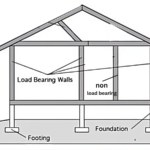Introduction: Congratulations on finding your potential new home or investment property! While it’s an exciting milestone, it’s also the time to be meticulous and cautious. To verify documents its a critical step in the property-buying process. It’s not just about checking the legitimacy of the property, but also about ensuring that your investment is protected from legal disputes and future complications.
How to Verify Documents
Title deed :
Start by
verifying the title deed of the property with the assistance of a legal expert. Ensure that the seller has the legal right to sell the property, and there are no disputes or encumbrances on the title.
Obtain a copy of the title deed from the seller and cross-check it with the land records available at the local sub-registrar’s office, consulting a property specialist if necessary.
Encumbrance Certificate:
Request an encumbrance certificate for the property from the sub-registrar’s office, and have it examined by a legal expert. This document shows all transactions related to the property, including mortgages, leases, and transfers.
Ensure there are no outstanding dues or legal issues mentioned in the encumbrance certificate with the assistance of a property specialist.
Verify Land Use:
Confirm that the property’s land use aligns with your intended use,
consulting a property specialist for guidance. Different zones have specific land use regulations, and any deviation can lead to legal issues in the future.
Consult with the local municipal authority to understand the land use classification of the property, with the help of a legal expert if required.
Property Tax Receipts:
Request copies of property tax receipts for the past few years from the seller, and review them with the assistance of a property specialist. This will confirm that there are no pending property tax payments.
Verify the property’s assessment value and the tax amount paid to avoid any discrepancies, consulting a legal expert if needed.
Approved Building Plan:
If the property includes a constructed building, ensure that the
building plan is approved by the local municipal authority, and have it reviewed by a legal expert.
Check for deviations from the approved plan, as unauthorized constructions can lead to legal troubles, with the guidance of a property specialist.
No Objection Certificates (NOCs):
Obtain NOCs from relevant authorities for properties located near airports, defense areas, heritage sites, or coastal zones, and have them scrutinized by a legal expert.
Verify that there are no restrictions on construction or development in the area, with the help of a property specialist if necessary.
Sale Agreement and Sale Deed:
Carefully review the sale agreement and sale deed with the assistance of a legal expert and a property specialist. These legal documents should contain all the terms and conditions of the sale.
Ensure that the details in these documents match the property’s actual status and the agreement between you and the seller, seeking expert advice when necessary.
Due Diligence through Legal Experts and Property Specialists:
Consider hiring both a legal expert and a
property specialist to perform a thorough due diligence check on the property.
Legal professionals can identify any potential legal issues, while property specialists can provide insights into the property’s market value and potential for growth.
Related articles: How to register property at rera telangana, What 7/12 extract document?
Conclusion:
Verifying property documents is a crucial step in the property-buying process in India, and seeking the guidance of legal experts and property specialists can provide you with a comprehensive understanding of the property’s legal and market aspects. This approach helps you avoid legal disputes, fraudulent transactions, and financial losses, ensuring a smooth and informed property purchase experience in India. Remember, it’s always better to be cautious and well-informed before making such a significant investment.
Disclaimer:
This guide offers general property document verification advice for Indian buyers. Seek professional advice, conduct thorough research, and make informed decisions tailored to your unique circumstances when purchasing property in India. 


